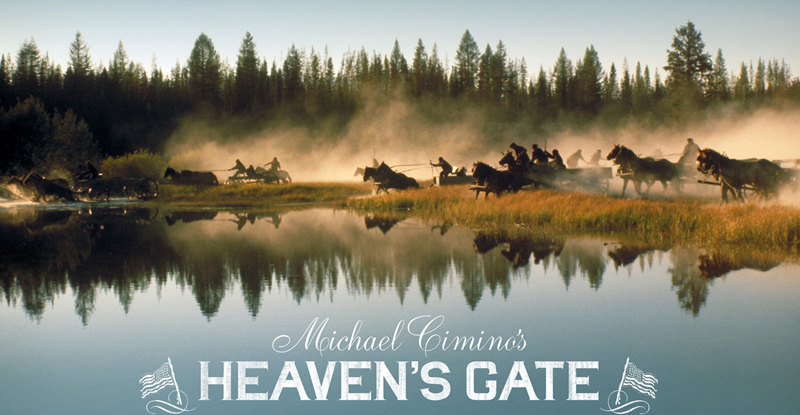“It was like a symphony of placid beauty.”
That’s how International Chess Master Anthony Saidy describes Game Six of Bobby Fischer’s legendary 1972 match with Boris Spassky, and any patzer who has studied the game can see why. Fischer’s play was so transcendent that each move seemed blindingly obvious… right after he played it, of course. Through a carefully orchestrated series of movements, Fischer was able to maneuver the game to an open position in which his bishop was ever so slightly stronger than Spassky’s knight, and in Fischer’s hands the advantage would quickly prove to be insurmountable.
You won’t necessarily learn much about this from Liz Garbus’ documentary “Bobby Fischer Against the World” but you can find out more about by clicking on the last button beneath the picture at the top of this page for Part 1 of a YouTube analysis of the game. Indeed, YouTube provides an invaluable supplement to Garbus’ documentary with hundreds of videos dissecting Fischer’s historic games so closely that you’re actually capable of pretending you understand what he was thinking, at least until you think about it.
Garbus moves chess strategy to the edge of the board, focusing instead on the melodrama surrounding the Fischer-Spassky match and, more significantly, the melodrama that surrounded every action the obsessively private Fischer took in his very public life. Chess only springs to the public’s attention when the players function as part of a broader narrative. Kasparov vs. Deep Blue was the right story in 1996-97 for a global culture grappling with the emergence of artificial intelligence, but it wasn’t nearly as riveting as the Cold War proxy waged between the reclusive, self-trained American grandmaster and the state-sponsored Russian champion (“Rocky IV” is, indisputably, heavily inspired by the Fischer-Spassky clash). Clashing cultures and ideologies distilled down to a heads-up match between two scintillating talents. Fischer was the rare case of the right man at the right time, and as odd as it sounds to say this about a chess player, it makes perfect sense that by some metrics he was, for a brief period, the most famous man in the world.
Fischer died in 2008 and I don’t know precisely when Garbus began filming, but she relies exclusively on archival footage of Fischer supplemented by modern day interviews with chess experts and other commentators (including an obligatory drop-in by pop intellectual du jour Malcolm Gladwell). Some of the footage is exceptional, even if already available (YouTube again). A 1958 clip from “I’ve Got a Secret” shows a bright-eyed though still somewhat withdrawn 15-year old Bobby Fischer, recently crowned American chess champion, showing off for Dick Clark and friends and getting free plane tickets to go to Russia to play the grandmasters. Quite a preview. Other footage of a still hopeful Fischer finds evidence of a young man who quite simply has no interest in life aside from chess. Even after his victory over Spassky, when asked what he wants to do next, he quite un-ironically answers that he thinks he needs to play more chess.
Perhaps his monomania was for the best because once Fischer latched onto other interests, a series of poor choices precipitated his tragic and much-publicized collapse. And I think it’s fair to call it tragic. Yes, it’s difficult to feel sympathy for a (Jewish) man who rants about the evils of the Jews and cheers the collapse of the WTC on 9/11, but it’s equally apparent that he was mentally ill, likely from a young age, with an unreliable mother and absentee/dead-too-soon father adding another layer to the story). His condition manifested in more spectacular and self-sabotaging ways as he aged and as events (becoming an exile and fugitive from the American government among them) fed his persecution complex.
Without siding with Fischer, that’s the lasting impression Garbus’ documentary leaves us with – the tragedy of genius wasted. A cliché perhaps, but in this case also an apt assessment, and a rather poignant one. Perhaps Fischer would not have stood out as much in an era where everyone is trained in the proper lines of play by computers, but in his day he was a prodigy who towered above a group composed entirely of other prodigies. And even the image of the wildly-bearded lunatic who spent his final years in irrelevance in Iceland doesn’t undermine our appreciation of that “placid beauty” that we can only revisit now. That boy from “I’ve Got A Secret” was on the cusp of glory, and it was something to behold. The most famous man in the world and he didn’t even have his own reality show. Imagine.
Video:
The film is presented in a 1.85:1 aspect ratio. The interlaced transfer is average and the video quality varies significantly depending on which archive material is being used. No problems worth mentioning.
Audio:
The Dolby Digital 2.0 mix is functional and clean. No subtitles are provided.
Extras:
The only two extras are an interesting featurette about the fight for Fischer’s estate (7 min.) and a very brief and not so enlightening piece on Chess History (5 min.)
Film Value:
I wish Garbus wasn’t so shy about discussing chess strategy. I know you risk losing viewers when talking about gambits and pawn islands, but it’s a bit like making a documentary about a musician while only including a few notes from any of his songs. Still, what we have is an affective portrait of an intense, obsessed man and a tense, twisty, and occasionally inspiring narrative surrounding the Fischer-Spassky match. Fischer is easily the most documented chess player of all time (in books, film, etc.) but “Bobby Fischer Against the World” is an exceptional chronicle of an exceptional man.


